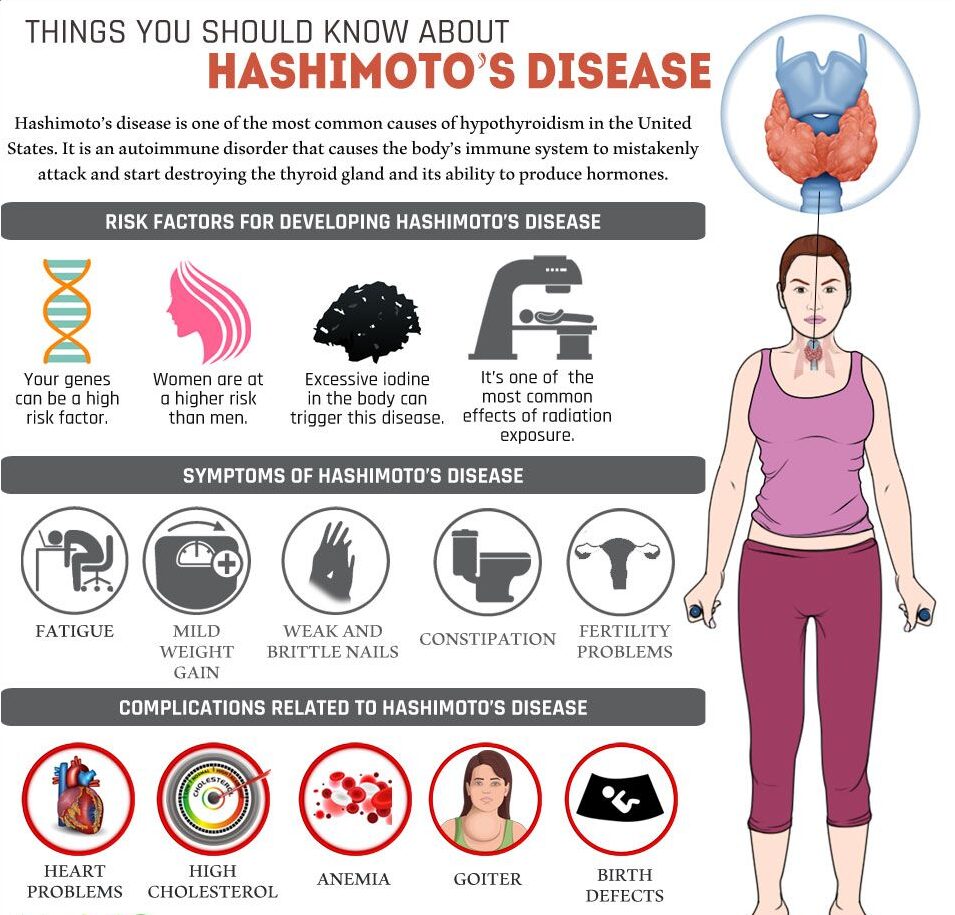Fatigue, Weight Gain, Depression, And Brain Fog Are Common Signs Of This Autoimmune Disease
The thyroid is the butterfly-shaped gland at the base of the neck. Hormones produced by the thyroid are essential for regulating metabolism, body temperature, energy, heart rate, menstrual cycle, mood, and hair and nail growth.
Hashimoto’s disease (chronic lymphocytic thyroiditis or autoimmune thyroiditis) is an autoimmune condition where the body produces antibodies that attack and damage the thyroid. This immune attack impairs the thyroid’s ability to produce hormones over time. Since these hormones impact every cell in the body, Hashimoto’s can have wide-reaching consequences.
Hashimoto’s is the most common cause of hypothyroidism (an underactive thyroid) in iodine-sufficient areas of the world like the US, impacting 1-4% of Americans. Hashimoto’s is ten times more common in women than men, developing most commonly between ages 30 to 50. While Thyroid Stimulating Hormone (TSH) is often used as a screening test, it is not enough alone to fully assess thyroid function.
The resulting decrease in thyroid hormones impacts cells throughout the body, causing symptoms such as:
- Fatigue
- Weight gain
- Headaches and migraines
- Thinning or dry hair, nails, and skin
- Feeling cold all the time
- Irregular periods
- Puffiness or fluid retention
- Fertility problems
- Slow digestion and constipation
- Brain fog
- Depression
- Aching muscles and joints
- Loss of muscle strength and tone
These symptoms may be vague early on, but the inflammation can result in an enlarged thyroid (goiter) and thyroid nodules over time. Untreated hypothyroidism can also lead to additional complications, including:
- Elevated cholesterol
- Heart disease and heart failure
- High blood pressure
- Pregnancy complications
- Myxedema- a rare, life-threatening condition where the body’s functions slow down significantly.
Functional Medicine Treatment for Hashimoto’s Disease
While thyroid hormone replacement medication is often part of a comprehensive treatment approach, it does not treat the disease itself but rather the symptoms of low thyroid hormones. A functional medicine approach to treating Hashimoto’s aims to rebalance and regulate the immune system.
It is vital to figure out and avoid individual triggers that cause autoimmunity to prevent cumulative damage and thyroid dysfunction. Utilizing lifestyle and functional medicine approaches to address the root cause also supports healing the thyroid.


